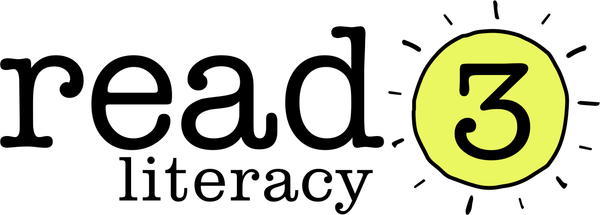What is Phonemic Awareness?
If you're just venturing into this wonderful world of literacy, the distinction between phonological awareness and phonemic awareness is likely to be hazy - it certainly was for me!
In a previous post we explained that a phoneme is an individual sound in a word. It logically follows that phonemic awareness is awareness of the individual sounds in words. This level of hearing is more fine-grained than phonological awareness which refers to 'hearing stuff in spoken language' more broadly.
A very simple summary is:
phonological awareness = awareness of sound patterns in our language
phonemic awareness = awareness of individual sounds
Phonemic awareness is a pretty big deal. Research tells us good readers and spellers have strong phonemic awareness. But it's important to understand that strong phonemic awareness doesn't automatically make you good at reading and spelling.
Children that are quick to pick up reading and spelling skills ALSO have phonological awareness, meaning they can hear the sound patterns in our language if they are brought to their attention (e.g. syllables, starting sounds, rhymes). Hearing individual sounds or phonemes develops easily from this strong base.
Phonemic awareness skills, just like phonological awareness, can be seen in a range of tasks that manipulate sounds in words from simple identification to more advanced sound deletion and swapping activities:
- identify individual sounds in a word ('pan' consists of p-a-n)
- delete individual sounds and tell you what is left (e.g. 'pan' without 'p' is 'an')
- substitute sounds (e.g. in 'pan' replace 'n' with 't' and you have 'pat')
- reverse sounds ('pat' in reverse is 'tap')
A child who can blend individual sounds to form words and segment words into individual sounds has basic phonemic awareness. If they can make sound changes quickly in their head, they have more advanced phonemic awareness called phonemic proficiency. As children learn to read, their phonemic proficiency develops and their ability to read and spell really steps up a notch.
Being able to 'process' or 'hang on to' the string of individual sounds within a word relies on verbal short term memory. The more working memory, the easier it is to build phonemic awareness and hear and sequence all those sounds.

Building phonological and phonemic awareness is an integral component of the Read3 daily practice routine. We refer to these as our HEAR activities. Throughout the Read3 program, children systematically build skills from syllable and rhyme awareness right through to phonemic proficiency. Our evidence-based strategies support children with working memory challenges by enabling them to read and spell words more efficiently, as efficient word reading is a vital first step in learning to read.
